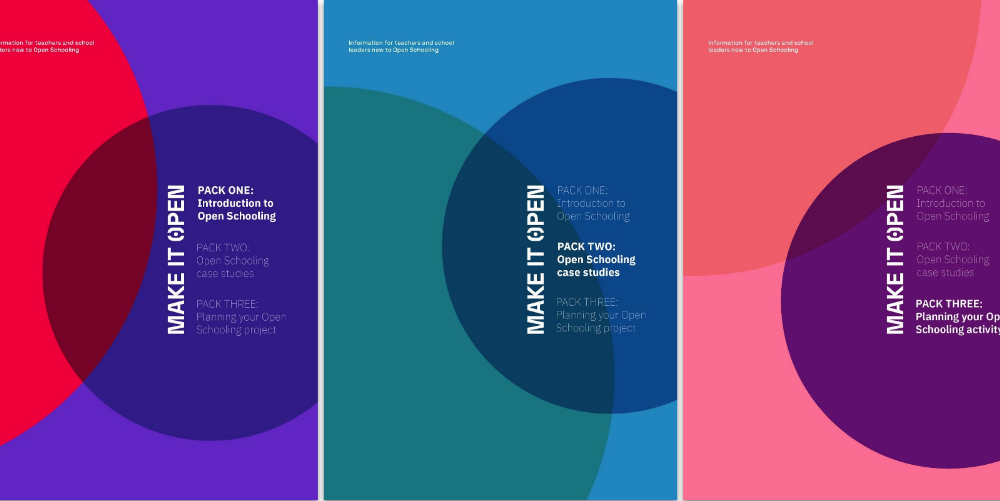Our Open Schooling Hub is open

For the final stage of Make it Open, our 3-year experiment in Open Schooling, we’re opening a Hub to support schools as they devise their own projects.
Starting this June, we’ll host a programme of activities, provide access to support (teaching resources, training, an international network of peers!). A cohort of 15 UK schools will connect with 150 schools across Europe to build Open Schooling projects during the 2022/23 school year.
Registration is now open for Information Sessions on the 8th and 9th June: book your place here! These sessions will introduce you to Open Schooling, what it entails and what benefit it can bring to your students, your school and your communities.
If you can’t make the information sessions but still want to know more you can register your interest here and we’ll keep you updated.
Tell me more about Open Schooling?
Open Schooling can take many forms – at its core it uses real world challenges to widen a young person’s horizons, giving them agency in their learning.
Download our Open Schooling information packs here, which include case studies and practical tips on how to run a project in your school.
Tell me more about Make it Open?
Through an 18-month pilot phase students have explored a range of topics including pollution, climate and waste, connecting science with the maker mindset.
The pan-European Make it Open project is focused on making Open Schooling easier to adopt for teachers and schools. It targets science curriculum, and draws on Maker Education and Citizen Science to engage children and young people through hands-on and social activities, embedded in their local communities.
Why should I get involved?
- You’ll get to build learning projects which empower your students and engage your community!
- You’ll be part of a peer-network of teachers and learners across 10 countries including Greece, Hungary, Israel, The Netherlands, Poland, Portugal, Romania, Spain, Sweden and the UK.
- You’ll have access to tools, training and support.
- Your work will be showcased as we close the project in 2023 with a national stakeholder event.
Who is behind the Make it Open network?
If you don’t know us already we’re Forth – a South London based Community Interest Company built by researchers, designers and educators. We already work with schools on our award winning learning programme Fixperts. And we’re working with wonderful partners across Europe and beyond, including Waag Society for Technology and Society in Amsterdam, Copernicus Science Museum in Warsaw and EUN the European Ministries of Culture.
Got more questions?
Feel free to get in touch with us directly.

